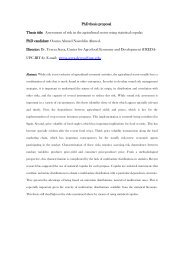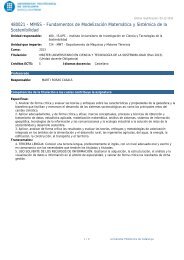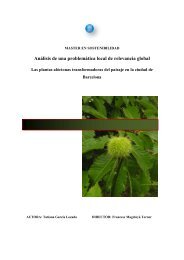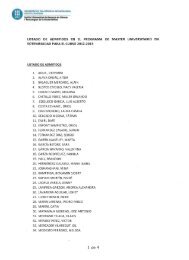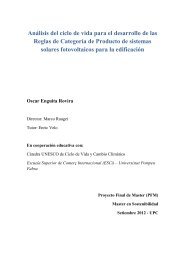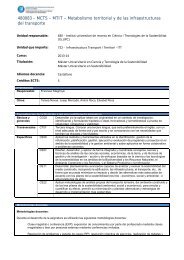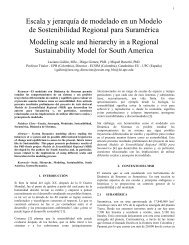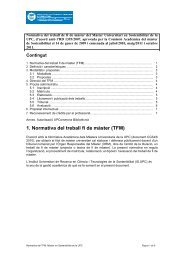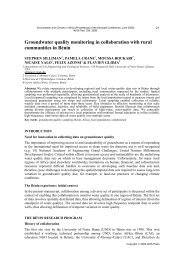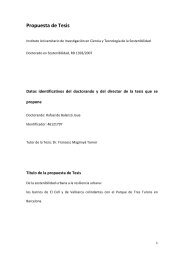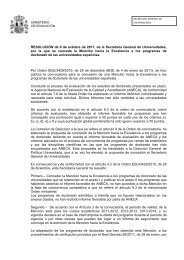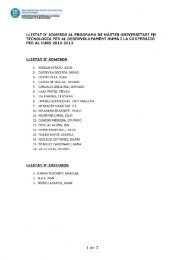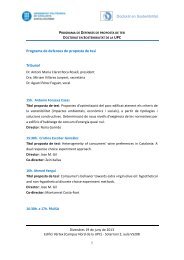âConsumer's behavior towards extra virgin olive oil: hypothetical and ...
âConsumer's behavior towards extra virgin olive oil: hypothetical and ...
âConsumer's behavior towards extra virgin olive oil: hypothetical and ...
Create successful ePaper yourself
Turn your PDF publications into a flip-book with our unique Google optimized e-Paper software.
affected negatively by the terms subjective norms (NSB). In contrast, the termsenvironment concerns <strong>and</strong> subjective norm moderate the negative preference associatedto organic production. Furthermore purchase intention, subjective norms <strong>and</strong> the higherlevel of study could mitigate the sensitivity of the consumers respect to price. Finally,when the purchase frequency will be more separate this will mitigate the negativepreference associated with Spanish organic <strong>olive</strong> <strong>oil</strong>.3. The effect of food related personality traits <strong>and</strong> lifestyle orientation onconsumer’s behaviour related to <strong>extra</strong> <strong>virgin</strong> <strong>olive</strong> <strong>oil</strong>: estimation of anextended hybrid choice model.Choice models have displayed to be of high value <strong>and</strong> importance in a wide variety ofapplied settings such as agro food marketing, public goods valuation, transport analysis,etc. (Van Loo et al., 2011; Greene <strong>and</strong> Hensher, 2013; etc.). The employment ofexperimental choice models has been motivated by the combination of two principalfeatures: (1) realism: in real markets, consumers are faced with competing products <strong>and</strong>must choose among them, <strong>and</strong> (2) experimental control (Ashok et al., 2002). Discretechoice modelling defines individuals’ utility function by means of explanatory variablessuch as the socio-economic characteristics of respondents <strong>and</strong> product attribute levels.However, in the last decade, many works have noticed that decision makers areconditioned by their psychological factors, personality traits, attitudes, etc. (Chen, 2007;Yáñez et al., 2010). These last concepts cannot be directly measures but inferred fromobserved variables. Therefore, our work focuses on the incorporation of latent variablessuch as attitudes <strong>and</strong> perceptions as explanatory variables in discrete choice models.Hybrid choice model (HCM) represents a promising new class of models which mergeclassic choice models with structural equations models (SEM) for latent variables (LV).Regardless of their conceptual appeal, up to date the application of HCM in agro food8



